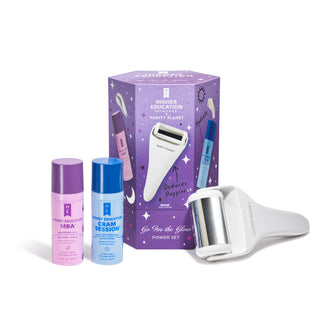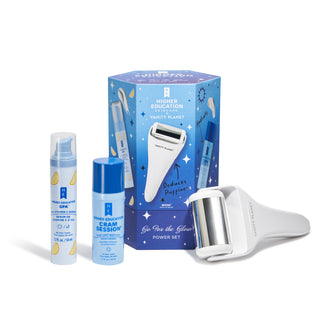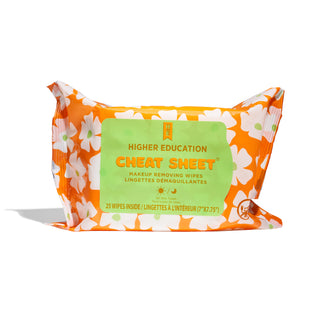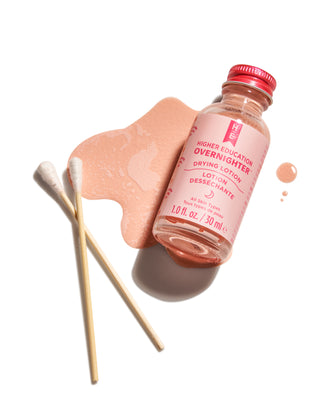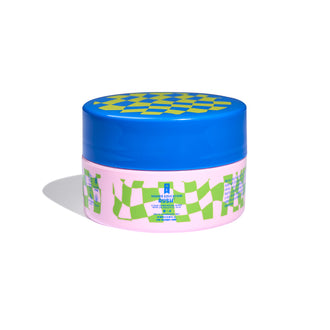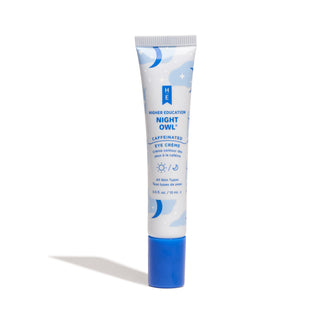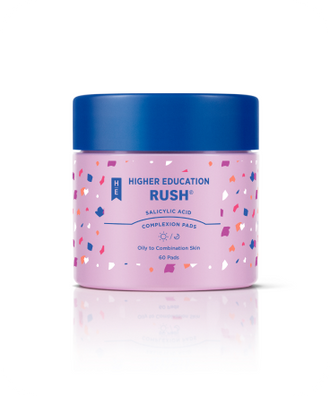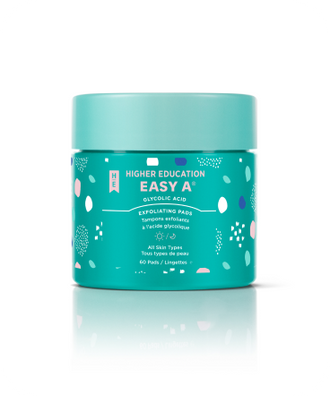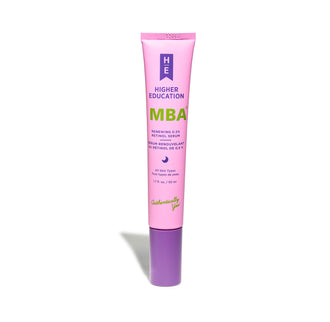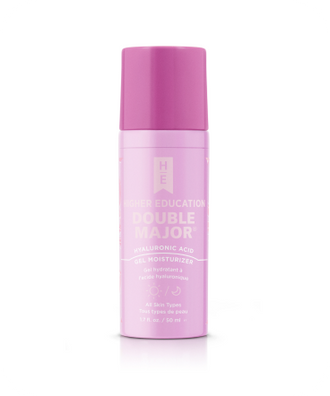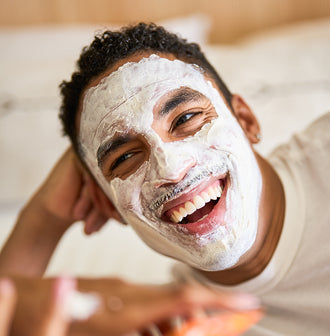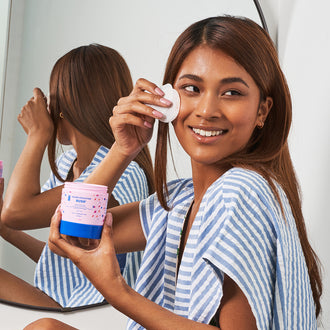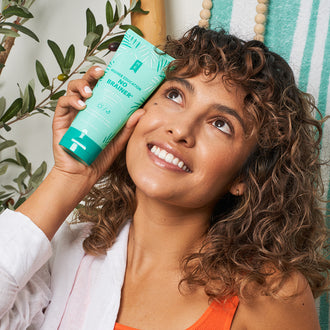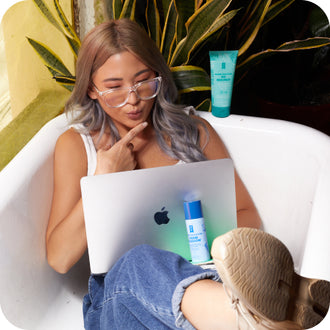
TRENDING TOPIC: EXFOLIATION
The word's out! Exfoliation is the name of the game in improving the appearance of skin and increasing the efficacy of those trendy skin care products you buy with the entirety of your paycheck. From gadgets and tools, dermaplaning and microdermabrasion procedures, sponges and wash cloths to exfoliating skin care products, the sky's the limit when it comes to options for exfoliation, which can be quite overwhelming when setting preferences.
Exfoliation is an essential step to maintain that healthy glow, improve skin texture and tone, and prevent pesky breakouts. Exfoliation works to remove oldest layer of dead skin cells and make room for new cells to come in. Not all exfoliation methods are created equal, however, and not every modality may be the correct choice for your skin type.
There are two general classifications of exfoliants: physical (AKA mechanical / manual) and chemical. You may be asking yourself, "What's the difference?" and "Which is better?" Well, that depends on your skin type, preferred usage, skincare goals and your existing skincare routine.
LET'S GET PHYSICAL
Physical exfoliants speed up our natural exfoliation rate to keep skin soft, smooth and healthy. This is especially important because as we age, the natural exfoliation process decreases. A physical exfoliant is a product or tool that requires rubbing or scrubbing action. These include your skincare scrubs, brushes, sponges, loofahs and muslin wash cloths. This type of exfoliation nudges the loose dead skin cells from the topmost layer of the skin using physical friction. Physical exfoliation skincare products contain tiny particles such as salt grains, sugar, jojoba beads or nutshell granules to remove dead skin cells. Skincare formulas range from gentle to rough depending on the particles used.
Physical exfoliators provide instant gratification (hello, millennials)! A freshly-exfoliated face feels supple and smooth. Looking for a rosy glow? In addition to removing dead skin cells, physical exfoliation stimulates blood circulation, which may help with lymph drainage and reduce puffiness.
Is your skin a little dry? Physical exfoliants tend to cause less irritation than chemical exfoliants. On the flip side, it's easy to get a bit overzealous with your scrubbing. Be sure to apply facial scrubs using small, circular motions.
Physical exfoliation is a great option for those with oily, thicker skin. HIGHER EDUCATION GRINDING AWAY® Skin Polishing Scrub is a great pick for a physical exfoliant. HIGHER EDUCATION GRINDING AWAY® gently exfoliates while feeling ultra-luxurious on the skin.
Pro-tip: Use HIGHER EDUCATION GRINDING AWAY® Skin Polishing Scrub as a body scrub to remove dead skin cells and get rid of those pesky body breakouts. For more tips on body exfoliation check out our blog 4 Ways to Incorporate Exfoliation Into your Skincare Routine.
MY CHEMICAL (EXFOLIANT) ROMANCE
For the record, in this case, "chemical" is not a dirty word! We are so over exposed to the words, "harsh chemicals," that this lovely treatment can initially scare us off. Chemical exfoliators work to break the bonds between the skin cells, loosening up the dead skin so it can easily be whisked away. They often have a smooth texture, unlike the gritty texture of a physical exfoliator and penetrate deeper into the skin.
The most common chemical exfoliants contain Alpha Hydroxy Acids (AHAs), Beta Hydroxy Acids (BHAs) and fruit enzymes. Derived from natural substances such as sugar cane, grapes, citrus and milk, AHAs dissolve the keratin protein bonds that hold dead skin cells together. Once the bond is broken, the dead skin cells dislodge from the surface of the skin. Popular AHAs you may have seen in your fave products include glycolic and lactic acids. These water-soluble ingredients have a small molecular structure so they can help with hydrating the skin and are great for those with dry skin. It's science, babe!
Keep in mind that AHAs like glycolic acid can leave your skin sensitive to the sun, so make sure to apply broad-spectrum sunscreen with an SPF of 30 such as HIGHER EDUCATION SPRING BREAK® Oil-Free Sunscreen SPF 30 in the morning.
BHAs, like salicylic acid, are lipid soluble and great for oily, acne prone and sun damaged skin. BHAs break through oil and go deep into our pores to unclog dirt, oil and debris. The beauty of BHAs is that they also have anti-irritant and antimicrobial properties, which assist in preventing new breakouts. RUSH® Salicylic Acid Complexion Pads are a perfect way to introduce a chemical exfoliant into your life to assist in controlling oil and preventing breakouts.
Enzymatic exfoliants are another form of a chemical exfoliant and they typically perform best on sensitive skin. Enzyme chemical exfoliators such as Papain (derived from papaya) and Bromelain (derived from pineapple) dissolve and digest keratin protein into smaller particles, which reveals smother skin. Enzymes are fruit-derived and lack acids or granules. These exfoliators work on the surface of the skin and slowly digest cellular buildup, making them the perfect way to introduce your skin to exfoliation.
HOW-TO EXFOLIATE SAFELY:
1. What's your skin type? If you suffer from dryness, have skin sensitivity, or have acne-prone skin, consider using a muslin washcloth for your physical exfoliator and a gentle chemical exfoliator. Have oily, thick skin? opt for stronger physical and chemical exfoliants. Those of you that have dark spots or darker skin tone should avoid strong chemical and / or physical exfoliation. Just beware of your skin and what it can and cannot handle!
2. What are you already using? Medications and skincare products with ingredients such as retinol, may cause induced skin sensitivity, dryness and peeling. Exfoliating during this time may exacerbate sensitivity and dryness and have the potential to trigger acne breakouts.
3. Hydrate! Exfoliating can lead to skin dryness so be sure to apply a hydrator after you exfoliate. DOUBLE MAJOR® Hyaluronic Acid Gel Moisturizer works well for a post-exfoliation hydrator.
4. Open wounds, cuts or sunburned? Now is the time to take a break from the exfoliating component of your skincare routine.
5. What's your schedule? In general, the more aggressive the exfoliation (think microdermabrasion here), the less often you need to do it.
Chemical exfoliants tend to be less aggressive than physical exfoliants but overuse of either may irritate your skin.
Whether a chemical or physical romance (or both), It's important to stay informed and dive deeper into what works best for you and your skin type. Both provide benefits for the skin and will leave you fresh-faced and ready to conquer whatever life throws at you.


